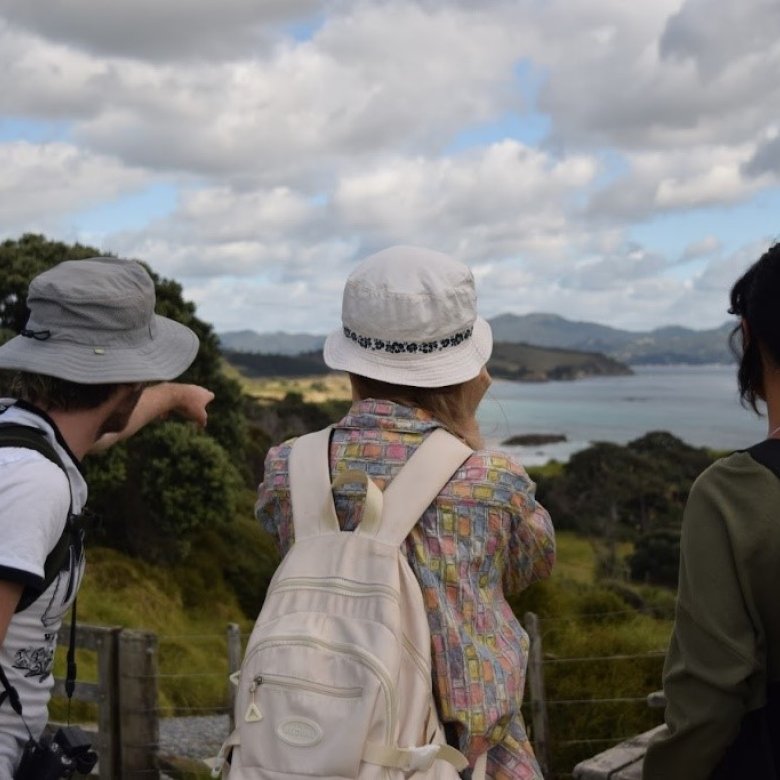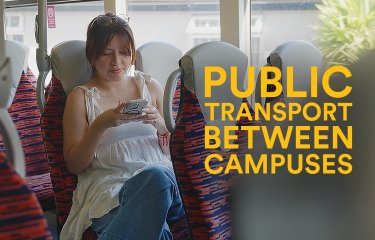The suitcase is unpacked. Now, how can you make the most of your semester abroad?
24 May 2024

This article was written by second-year BA(Hons) Journalism & Creative Writing student Danielle, who is currently studying abroad for a semester at Auckland University of Technology, New Zealand. She enjoys photography and can often be found exploring new places looking for a good angle.
Over my last two blog posts, I’ve discussed the initial stages of deciding whether an exchange is right for you, all the way through to the final stages of booking your flights. So, you’ve arrived in your new country, got the keys to your accommodation, and unpacked your suitcase – what now?
Hopefully you timed your flights to give you a week or at least a few days before the semester starts to adjust to the new country, and – depending on how far you’ve flown – get over any jet lag.
If you’re arriving for the first semester of the year, attend orientation! This is the perfect opportunity to get a feel for the university community and scout out any interesting student societies at freshers’ fair. Especially when away from home, it is great to connect with people who share similar hobbies or values to give you a sense of familiarity and friendship. Equally, this can be your chance to try a new club that you may not consider or have access to back home.
If you’re arriving in semester two, see if you can get a tour of the campus and meet a student ambassador to give you the lowdown on student life. Universities often run intro sessions for all incoming exchange students. It is great to meet others on the same scheme, as they will know how you’re feeling and are reassuring to connect with.
Introduce yourself and feel confident knowing that everyone else is in the same boat. They will want to get to know others and make friends just as much as you, so don’t be afraid to make the first move and start a conversation. If you’re sharing accommodation with flatmates, try to have a social night or get together in the kitchen to break the ice. All of these interactions may feel overwhelming when adjusting to the new environment, especially if you are not particularly outgoing, but the first couple of weeks will be your main chance to set up a positive living environment and support network for yourself.
Once you’ve found all of the essentials (a local supermarket, a nice bar, and maybe a few friends), you can begin to think about the academic side of the exchange. Familiarise yourself with your timetable and visit the student services on campus to collect your student ID card and check that you are registered on their online systems. Starting to explore the campus before classes begin will reduce any stress you may have about your first day and allows you to focus on meeting your new classmates and lecturers, rather than being late and lost!
One of the main reasons for studying abroad is the chance to travel. Find out when your deadlines are in advance, so that you can book travel confidently knowing that it won’t clash with your final assignment submissions. The mid-semester break or after the end of the semester are the best times to schedule any longer trips, but remember that weekends away and day trips are still possible during term-time.
This is where you’ll need to find a balance between travel, socialising and studying. As highlighted in blog one, there is a ‘study’ in study abroad! At the same time, you are undoubtedly there to have new experiences, travel and make the most of the location. Consider making a bucket list of activities and attractions to visit, perhaps researching this before you go on the exchange. It is easy to get caught-up in uni life, so dedicating some time each week or month to do something from your bucket list will ensure you leave with no regrets or missed opportunities.
This can link to your aims for exchange and ultimately your career goals. Perhaps there are workshops running that will develop communication skills, or a student creative project that could add to your portfolio. Use your exchange to add colour to your CV and make you stand out above other applicants to future positions. Visit a notable gallery, meet inspirational figures in the community and gain experiences that you would otherwise be unable to access.
Finally, reach out if you need support. Studying abroad is a big change and no one expects you to go through the process alone. Whilst you can contact the study abroad team and lecturers back at Falmouth, it is great to reach out to people at your partner university where possible. They will be best placed to direct you to the most appropriate support and advice, as they are familiar with your new environment and studies. It can be difficult to be away from friends and family back home, but choosing one thing from your bucket list each week that you would like to visit or experience can keep you engaged in the exchange and the time will fly by before you know it!





